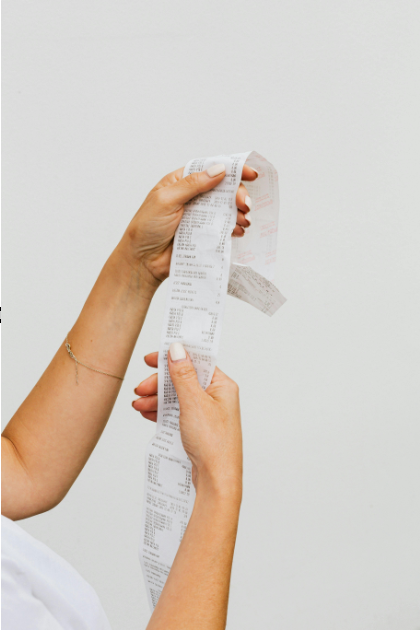Tinder is adding a new height filter. Fed up users have some creative ideas for the next one.
Sarcastic dating app users say: "Why stop there?"

No one seems particularly happy about Tinder's new filter, for many different reasons.
Can we agree that no one really "likes" using dating apps? It's just that there aren't many better options anymore, and that's saying something because dating apps truly don't work very well.
A recent survey showed that about eight percent of people met their current or most recent partner on a dating app or website. That's...a pretty low number, considering these apps have been extremely popular and mainstream for well over a decade. Why aren't they more effective? Well, apps encourage people to look for stimulation and validation rather than real connection. They encourage shallow behaviors and preferences, and they make it easy to ghost and go find someone new at the drop of a hat—or just because you're suddenly not feeling the vibe.
All signs currently point to the problem, and dating apps in general, getting worse rather than better. And the excruciating "women only like tall men!" discourse will never recover from the latest development.
Tinder, widely considered the most popular dating app in the United States, recently added a new and controversial premium feature for some paying users. They'll now be able to filter out potential matches by height.
If you're a paid user with access to the setting in your profile, you'll be able to set a maximum and minimum height for people you'd like to match with.

Tinder actually isn't the first app to try this. Bumble previously had height filtering as a premium option before eventually removing the feature (though there's still an open spot in your profile to list it). Hinge has a height option as well. And now, Tinder. It's all part of Tinder's new rebrand to be taken more seriously as a way for Gen Z users to find real connection and relationships, as younger generations are less drawn to hook-ups. They're calling it a "broader effort to help people connect more intentionally on Tinder."
(To be fair, the height setting is not a hard filter. It's just a strong suggestion that helps guide the algorithm. It's also, for now, just a test and not a permanent feature.)
The trouble is that height seems to be the only physical attribute you can filter by, which plays into some really nasty stereotypes about heightism and online dating. But hey, preferences are preferences. Luckily, the announcement sparked a firestorm of interest and debate about the new feature—and dating app users have lots of ideas for new filters they'd like to see in the near future.
Weight filter
Yes, this is the obvious joke suggestion that's been made all over the Internet in response to Tinder's news. But it's kind of fair. Who gets to decide which physical preferences are offensive and which are legitimate?
Salary/Net income filter
It's perfectly reasonable to want a partner with a stable career. But do we really care about the actual career or do we just want to make sure they make enough money? Honestly. Some users would like to see a salary slider in the settings to weed out anyone who can't match their lifestyle, or who might get weird about splitting the bill on the first date.
Hair and eye color filter
You might prefer a partner with dark hair, and that might show up in your swiping preferences. But why bother swiping when you could essentially just erase light-haired people from your entire world with a filter? After all, what really matters is efficiency and saving everyone time.
Cup size / penis size filter
OK, look, I didn't say it, but this one has come up on all the dating app subreddits many, many times. Sometimes in jest, sometimes not...
Abs filter
It's not enough to be able to see whether someone has abs or not in their photos. To save everyone time and maximize efficiency, we should just auto-filter them out if they don't have a six-pack. Or, conversely, if you're not down with eating chicken and broccoli for every meal, you can filter the gym-heads out from the get-go.
Fishing/hunting filter
Women on social media have been clamoring for this one for a while, and would surely pay top dollar. We've got AI technology now; there's no reason we can't tell that a guy is holding a fish or a severed deer head in his photo and promptly remove him from the queue. The filter can work overtime for if someone's holding a gun.
Conversely, you might be really into these things, and the filter could end up working in your favor, too.

Onlyfans filter
Similarly, there's got to be a way to run text analysis on a profile to find out if the person is hawking a paid NSFW profile online somewhere.
Married filter
You'd think this wouldn't be necessary, but here are we. One survey recently found that an astounding 65% of Tinder users were married or in a relationship. Whether they're polyamorous, looking for a third, cheating, or something else... can we auto-scan the photos for a wedding ring or something? Run the names against a marriage license database?
Spelling and grammar filter
There's no reason that Tinder and Bumble couldn't partner with Grammarly and give us a sense of people's reading or literacy level, filtering out anyone who doesn't meet a certain standard.
Old photo / heavily filtered photo filter
Surely, we have the technology for this. If people are misrepresenting the way they look with fancy filters or outdated photos, then premium users should reserve the right to have those people removed from their queue. If the photo was taken with an Olympus digital camera circa 2002, let the filter do its thing!

Some of the new filter ideas are clearly ridiculous. Others might actually be helpful. But put them all together and it paints a pretty bleak picture of modern dating.
Having preferences and likes or dislikes is totally fine, and a natural part of dating. The idea is that you're supposed to find these things out with your eyes or by actually talking to people and learning about them. Being genuinely curious about another human being you find attractive and interesting is part of the process. Skipping that by adding preferential filters that remove more and more people from your orbit is antithetical to what looking for love is supposed to be all about. And maybe that's exactly what Tinder and the other apps (many of whom are owned by the same corporation) are going for.
NPR cleverly points out that we shouldn't forget dating apps are run by for-profit companies. When two people meet on the app, fall in love, and settle down together, the app loses two crucial users. Keeping people frustrated, stuck on the app, and desperate enough to pony up for "premium features" and better filtering is the better move for them—and of course, spotlighting a few happy endings here and there just to give everyone some hope.
"Heightism" definitely exists in the dating world, and especially on apps, but it definitely seems like Tinder is intentionally stoking that fire to boost their paid user base. Now you've got short guys that are hurt and pissed off, and women that are sick of being accused of being shallow for their legitimate preferences, and everyone's angry at everyone else. It's a move that ultimately drives us further apart.




 American portion sizes are colossal.
American portion sizes are colossal. Tax shouldn't be a not-so-fun surprise at the end of your shopping trip.
Tax shouldn't be a not-so-fun surprise at the end of your shopping trip.  A trip to the doctor shouldn't break the bank.
A trip to the doctor shouldn't break the bank. This totally isn't weird at all. Right?
This totally isn't weird at all. Right? It's a choice.
It's a choice.  America loves extra sugar in savory foods.
America loves extra sugar in savory foods.
 Princess Odette Girl GIF by The Swan Princess
Princess Odette Girl GIF by The Swan Princess  Rose GIF
Rose GIF  sailor moon GIF
sailor moon GIF  river phoenix 80s GIF
river phoenix 80s GIF 
 All of this will be ours one day. Yay.
All of this will be ours one day. Yay.  Elderly woman with white hair on phone, sharing a story about a dead person her child has never met.
Elderly woman with white hair on phone, sharing a story about a dead person her child has never met.  Surprised elderly man in blue shirt against a yellow background.
Surprised elderly man in blue shirt against a yellow background. Elderly woman in pink shirt using a smartphone on a garden swing.
Elderly woman in pink shirt using a smartphone on a garden swing. TV for waking. TV for sleep.
TV for waking. TV for sleep.  Elderly man using a magnifying glass to read a piece of mail
Elderly man using a magnifying glass to read a piece of mail
Mom is totally humiliated after her kindergartner tells the teacher what she does for work
She was clearly mortified.
A mom is embarrassed by her child.
One of the great joys and stresses of parenting is that you never know what will come out of your child’s mouth. When you have young, inquisitive kids, they can say really inappropriate things to people without realizing they were being rude or possibly offensive. TikTok influencer Aurora McCausland (@auroramccausland), known for her DIY cleaning tips, recently told a funny story on the platform about how her son believes she makes a living. The problem was that she heard about it from her child's teacher.
Mom is embarrassed by her child
“The other day, I went and picked my five year old up from school and when I get to his classroom his teacher pulls me inside and says, ‘Hey, today he wanted to tell us about what Mommy does for work and said that Mommy makes videos in her bedroom but only when I'm [he’s] not at home,” McCausland recalled.
Given her body language while telling the story, McCausland was clearly mortified after hearing what her child said to his teacher. It makes it look like she may be posting videos to adult sites while her child is at school, which most people wouldn’t want their son’s teacher to know about.
The good news is that another teacher was there to clarify the young boy's comments by adding, “I think she makes TikTok videos.” The uncomfortable situation was a great invitation to chat with her son about what she does for a living. “So I have to have a conversation with my son about how he tells people what I do for work,” she finished her video.
The funny video went viral, earning over 1.7 million views on TikTok, and inspired many people to share the times when their children had funny ways of explaining their careers. The commenters were a great reminder to parents everywhere that if your child says something embarrassing, it's ok, just about everyone has been through it.
Moms share their most embarrassing moments
A lot of parents spoke up in the comments to show McCausland that she's not the only one to feel embarrassed in front of her child's teacher.
"My son told everyone that we were homeless (because we don’t own our home, we rent)," KBR wrote.
"I work in ortho.. my daughter told her teacher I steal people's knees bc she heard me talking to my husband about a knee replacement," Aingeal wrote.
"My son told a teacher we were living in our car over the summer. Camping. We went camping," Kera wrote.
"In kinder, my son thought Red Bull was alcohol and told his teacher I liked to have beer on the way to school," Ashley wrote.
My niece told her teacher her mom and dad work at the wh*re house. They work at the courthouse," Ellis wrote.
"My husband works as a table games dealer at a casino. Kindergartener, 'Daddy's a Dealer!' We now start every school year clearly stating he works at the casino," CMAC
"My son said we lived in a crack house…There’s a tiny chip in the wall from the doorknob," KNWerner wrote.
"My dad is a hospice chaplain and officiates a lot of funerals. My son and nephew were asked by their preschool teacher if their papa was retired or had a job. They told her his job was to kill people," Tiffyd wrote.
"My son said "my dad left me and I'm all alone" to a random person at the zoo. My husband was just at work," Shelby.
"I am now in my 70s. In my gradeschool, during the McCarthy era, I told my teacher my dad was a communist. He was an economist," Crackerbelly wrote.
"In Kindergarten, my daughter told her teacher that mommy drinks and drives all the time. Coffee. From Starbucks," Jessica wrote.
"Well I once told my kindergarden teacher a man climbs over our fence to visit my mom when her husband is not home... It was a handy man who came to fix gates when they were stuck," Annie wrote.
Ultimately, McCausland’s story is a fun reminder of how children see things through their own unique lens and, with total innocence, can say some of the funniest things. It’s also a great warning to parents everywhere: if you aren’t clear with your kids about what you do for a living, you may be setting yourself up for a very embarrassing misunderstanding. So, even if you think they know what you do ask them as see what they say, you could save yourself from a lot of embarrassment.
This article originally appeared last year and has been updated.